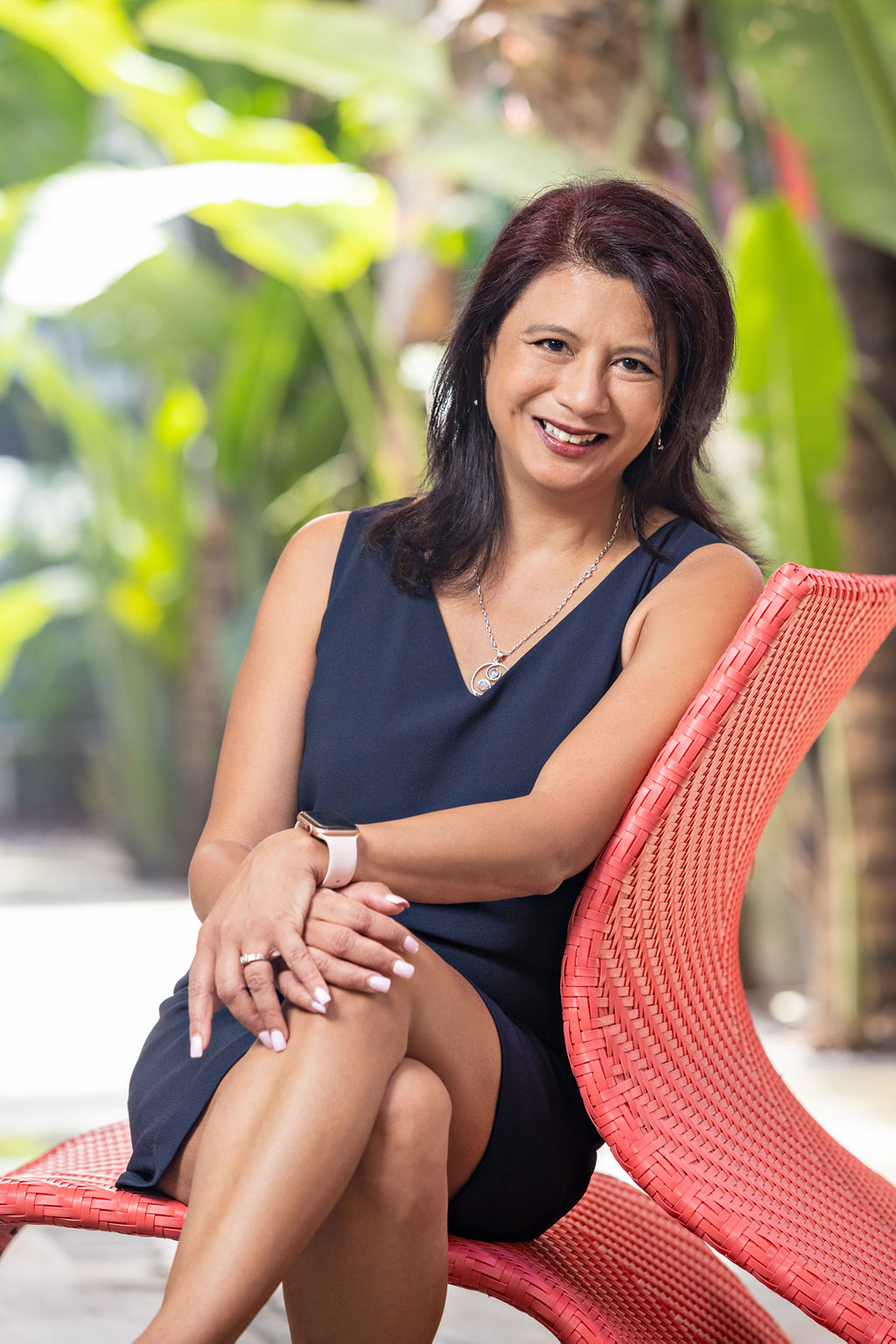Meet Felix, Sixth Generation of a Prestigious Friuli Winemaking Family
When speaking about wine, we’ve all heard about Old World vs. New World. However, there may be a new division in the Italian wine world. Let’s call it old school vs. new school — a wine industry generational shift. We’re not talking about winemaking traditions, but wine marketing and digital innovations. Felix Jermann was born to be wild about wine. Don’t be fooled by his extravagant ways—especially if you follow him on Instagram @afixvibe.
Leggi questo articolo in italiano.
You’ll find Felix globetrotting on a high speed jet, carrying a suitcase full of education and business savvy (and maybe a bag full of soil) ready to take the wine world by storm! Here’s what the sixth-generation son of the Jermann Estate Winery has to say…
Who is Felix Jermann?
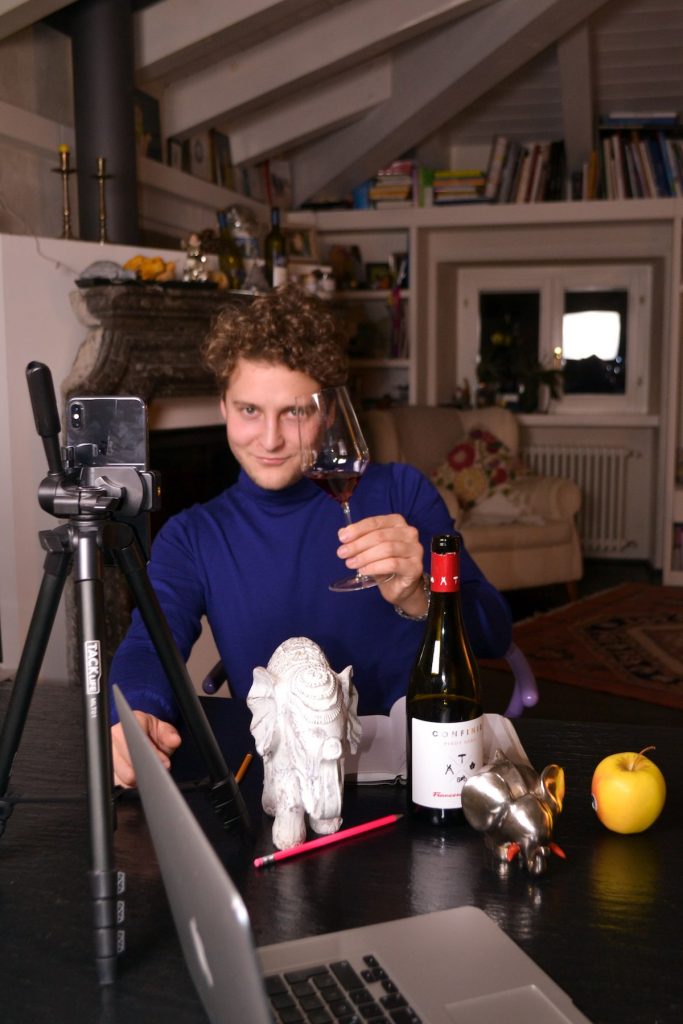
I am the sixth generation of the Jermann Winery, a family business that has been routed in the Friulian wine making tradition, but is also very much recognized as one of the best Italian producers. That’s kind of a part of where I come from. I was very much involved in the family wine business, but left in April of 2020—about the beginning of the quarantine here in Italy.
Then, I decided to move on to my own projects and right now, I’m basically a winery broker. I work for investors who are looking to invest into real estate and wineries of a specific kind in Friuli. I’m also now reaching out to other regions due to my clients’ requests.
So, that’s a little about what I do and you might not see that so much on my social because I show more the fun aspect of enjoying wine. I feel that wine should be very approachable. Also, it should be shared because wine is the means to be able to connect and share emotions and experiences, as well as all the more technical things that we can have from wine.
Let’s go back a bit and introduce our readers (viewers) to Friuli Venezia Giulia
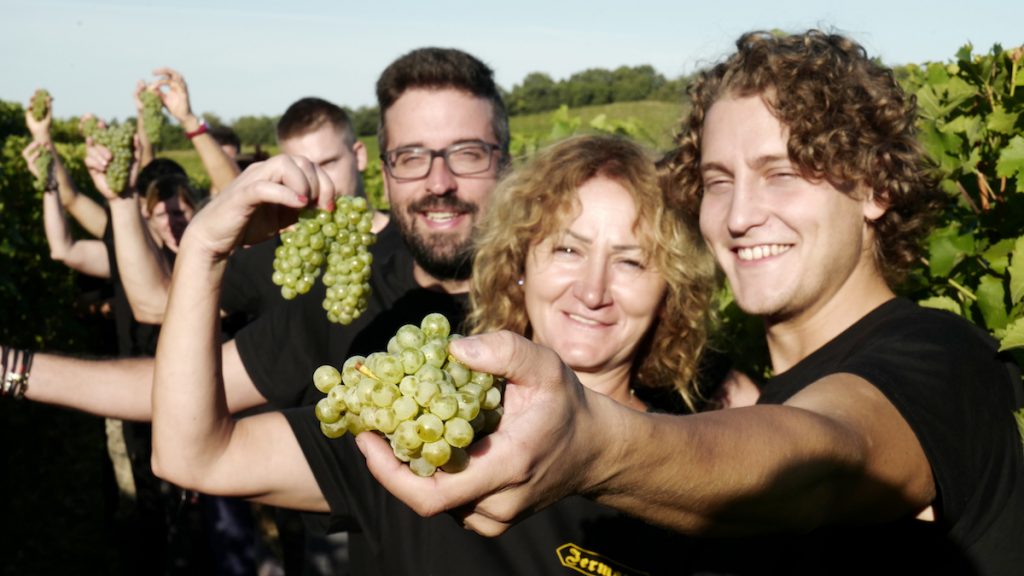
That’s an important question because a lot of people don’t understand where it is. Friuli Venezia Giulia is a very small and hidden region within Italy. It’s on the northeast side of Italy right on the border with Slovenia and to the north you will find Austria. We also have the Adriatic Sea and it kind of creates this beautiful microclimate.
We are protected from the Alps in the north and healed by the Adriatic Sea that brings an almost Mediterranean feel. So, it’s a continental climate with Mediterranean influence and protected by the Alps. Right in the middle you find this small range of hills that are constructed by a very special soil which is called ponca. I’ve actually brought ponca all around the world when I used to travel for Jermann. It was a beautiful experience because I would make people touch the land and they would get so excited.
Note: Watch the video where we discuss how Felix got the name Ponca-man.
Ponca is what makes our territory exceptionally unique and only to Friuli, namely the Collio and Colli Orientali regions. Although, it actually developed in Slovenia. But the ponca is really the discriminating factor from our region and something you can only find here. It has gained a lot more interest over the years and people are understanding more and more its value and why certain varieties (and not just autochthonous varieties) grow exceptionally well on this soil. We are also very much diverse because of our historic heritage. Because the borders changed a lot during the First and Second World Wars and changes between the Austrian Empire and Italy. Because of that, there is a lot of mix of traditions from Austria, Slovenia and Italy and coming from this melting pot would be Friuli.
Talk about the Jermann family name and your ancestral roots.
Jermann is a more typical Austrian name. In fact, we traced the origins from Burgenland (which is another region of Austria near Vienna) and from there we migrated down through the generations: first into Slovenia and then into Italy where, in 1881, we settled in Villanova di Farra.
Do you consider yourself Italian?
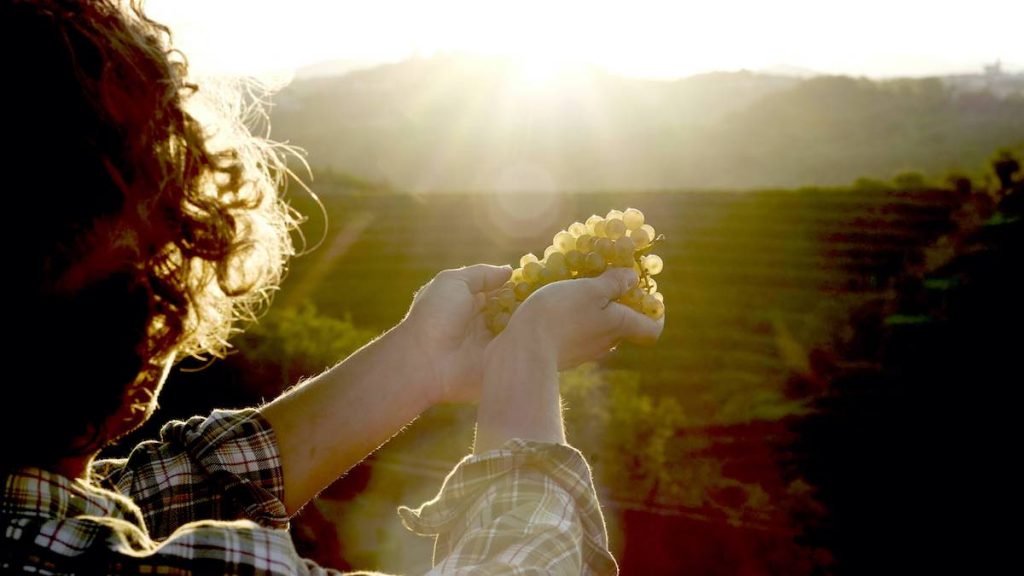
I definitely consider myself in some way Italian, but also much more international because I’ve lived in the United States, Australia and Austria as well. I feel like I’ve been influenced positively by all of these different locations. If you ask my father, he definitely does not feel Italian so in a similar way, I don’t feel 100% Italian even though I’m influenced and proud to say that I am. There are definitely certain characteristics that don’t correspond with other Italians or the classic Italian that you may know.
How old are you?
I am right now 24 years old.
How many languages do you speak?
Working proficiency, I speak five languages. Italian and Slovenia are the mother tongues and I would consider English to be almost my mother tongue because I’ve spent so much time learning and working with it. Then, German and Spanish kind of are the same way because I lived in Austria for seven years and then I studied Spanish and also worked in Spanish countries for Jermann.
I learned English from an early age. My father actually had a period when he lived in Toronto, Canada for a couple of years and my oldest brother was born there. He lived in Toronto for a couple of years during his time of rebellion with his own father.
Both my parents pushed me to speak different languages. My mother really wanted us to speak both Slovenian and German and to have the historic knowledge of where we came from.
If you speak the same language as the person that you are working with or having a glass of wine with, you are definitely much more connected.
You went to the University of San Francisco. How did that decision come about? Was it yours?
It was definitely mine. I went to boarding school in Austria and graduated from high school when I was 17. Then worked abroad in Australia for one year. I was not sure what I wanted to do then. I was working in restaurants because we also have a family restaurant. Then by 2014, I was very excited about and attracted to Napa and Sonoma. I really loved how this region marketed itself. Also, I was interested in the Silicon Valley approach to technology and the development of start-ups.
I wanted to be close to that world. So, I decided to send an application to USF and other universities in California. However, San Francisco was my first choice because of the proximity to Napa and Sonoma. Being close so I could intern there was really important for my development within the wine world. From there, I was able to move to other states with internships and work programs.
It was definitely a great choice, but it came from my will to travel.
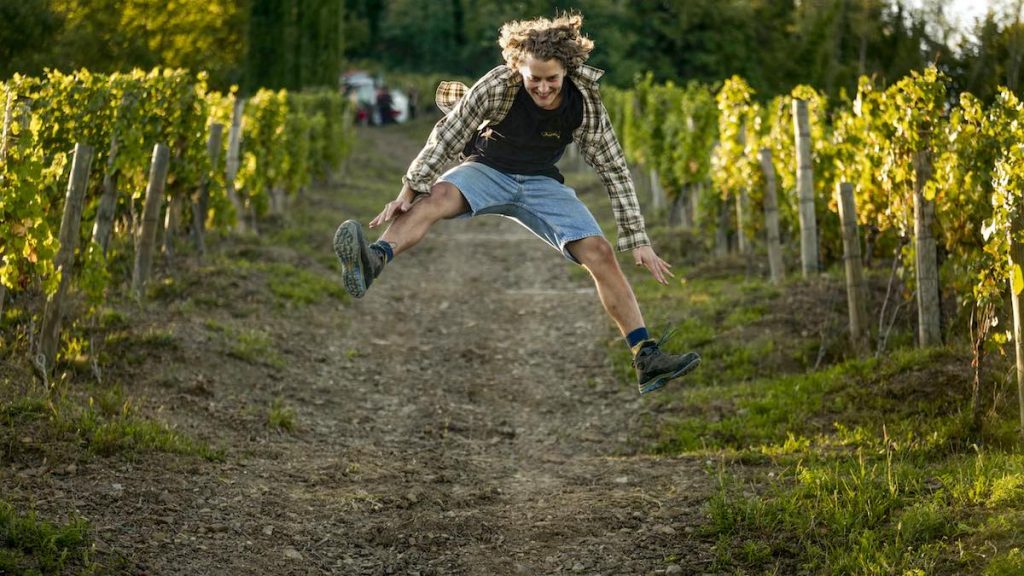
In an Instagram post, you called yourself a Wine Fanatic. Can you define that?
I think it’s a person who has a lot of energy within the wine world, likes to discover, and is always into it. Also, someone who is still learning and discovering a lot every day. I research about wine, wine realities, and investing into wine. Then, I discover other wine experiences like how a wine makes you feel and then, think about it. Maybe it’s also a person who doesn’t take the wine too seriously, but it’s definitely his life.
It’s the excitement, the energy, the research aspect and the discovery. Then, the idea of wanting to share these emotions with the people who you are with.
How old were you when you first had wine and what was the “aha” moment.
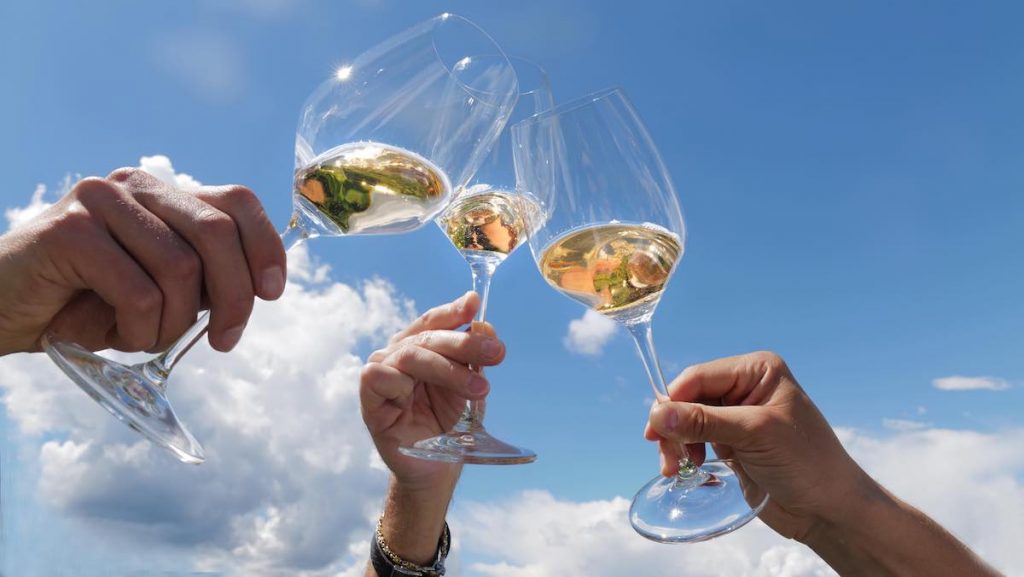
I don’t think there was one particular wine that was the “aha” moment. It was more of a process and ongoing journey. The first time I tasted wine (or at least this is how my parents described it) was when I was a couple of month’s old. I put my finger into a family Riesling and tried it, and apparently, I smiled!
Also, spending time in my grandfather’s restaurant influenced me — being able to serve wines in a restaurant and seeing how people react, enjoy it and connect with it. I think it was this whole journey from Friuli and then going into Austria and then, Australia and San Francisco and discovering all different wine styles and regions. I think it was the whole process. When I finished university and after internships, I realized more and more that this was definitely something I wanted to do.
It’s definitely a journey.
You also paint. Did you study that at school?
I’ve painted a lot since I was a young boy. I always painted nature around me to express the emotions that it gave me. I have a website that has been up since I was in high school.
Is there a connection between art and making wine?
Making wine is definitely an art form. You take some grapes, and for an artist could be seen as different colors, and then you blend them together to make one color. It’s never really one color because it is the competition of different identities. So for me, painting was always liberation and a way to express my feelings and happy moments. I have always painted after having a glass of wine or paint while drinking wine. It was definitely a pairing that fitted me very well.
I did a couple of wine and art exhibitions here in Italy, Austria and also in San Francisco which were very successful. I sold some paintings, but it was just for fun. Painting allows me to transform emotions with oil paints and ink.
You are now a Wine Broker. How did the decision come about and where do you see it going?
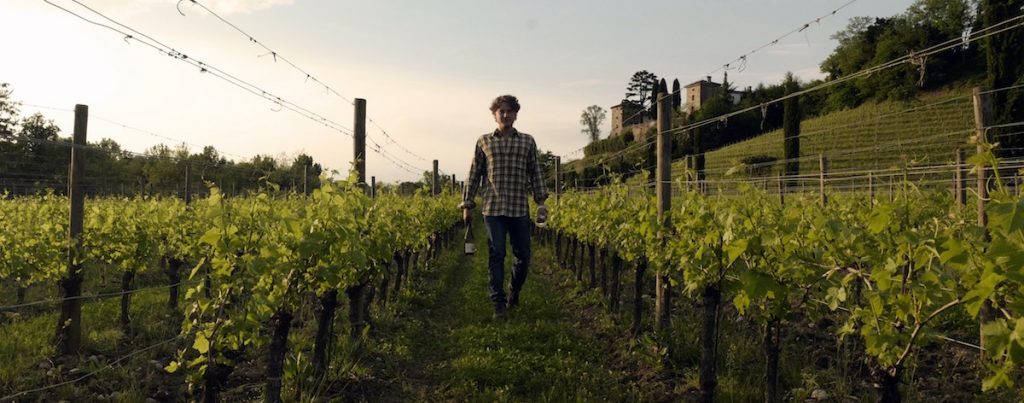
It was a request by a family friend who contacted me and said, “Felix, I know you’re an expert of the region and now that I am settled in my career, I want to invest in a winery and wine in Friuli.” That’s how it started. It’s been nine months that we’ve been on this journey together: me consulting him on the best areas in Friuli, and also the wineries itself.
Now I also have two clients within the region with different objectives, goals and budgets. It’s really exciting for me because of course, I know the region very well, but getting to the table to talk about these things is a very delicate process.
My business is all about word of mouth connections and me also reaching out to different investors who I feel have the ability, desire, and goals to invest into Friuli.
Right now Friuli is one of the least expensive regions to buy a hectare of land. More and more development is coming into the region from within and outside, because of the great potential of the wines and the touristic aspect.
This has been my main work and occupation. I’ve seen a lot of success because of the connections that I’ve been building. I am not limited to just Friuli, but can go all around the country.
Note: Since our interview, it was announced that Antinori has acquired the majority of the Jermann Winery.
Communication Career
I am also involved with communication such as consulting wineries about marketing and communication, social, and digital. I have of course, studied all of this during my university years and even more during my time at Jermann. However, through my social LinkedIn, Instagram and Facebook, I’ve been really able to attract attention to what I do in the communication aspect and people are interested in my services. Although, I don’t specifically highlight them which is something that I’m moving towards next. I am working on a business website to attract even more attention.
It’s really been a development like the wine process that got me being a wine broker and communications expert. I don’t think twice if I have the right feeling and I will just do it.
What is your vision and goal? Where do you see yourself going in ten years?
The reason I’m focusing a lot on being a winery broker is because, unfortunately because of COVID, a lot of wineries have been put into problematic situations because of their business structure or ideologies. Also, because of a generational change, or they just don’t want to continue–which is normal in this business. My aim is to continue the legacy of the winery with the right investor. So, I want to be known as the person who can make these connections and continue the legacy of the winery without it falling apart. It will then thrive much longer, even if the creators are not there anymore.
This synergy of actions that move forward allow something to become successful. The most successful regions in Italy like Barolo, Tuscany or Alto Adige are that way because there are a lot of important players. I feel like in Friuli, there are some important players that have been here for a long time, but there’s still a lot of diversity and disconnection between all of them. So, if we are able to create a system of players that act as a team and create excitement about the region, it will bring great pleasure when drinking the wine.
How does a young wine consumer develop their skills?
If we look at a magazine that is more tailored for millennials, I think Wine Enthusiast is a great one. But apart from that I feel that attending wine events not in Italy, but in your hometown is key. It, of course, depends on where you live. However, if you’re in the States, you have a lot of Italian wine events and educational events. I feel that it’s very useful to attend. Also, take the WSET course which is very much complete. If you are then able to travel, get to know the realities within the regions. When you taste the wine within the region, your world opens up because every time you taste that wine or a similar wine, you will think of those vineyards that you visited and picture in your mind: the winery, the food, and how people live.
Go on the organized tours, but also do the everyday thing that we Italians do and that is go for an aperitivo and ask for the local wine suggested by local sommeliers or waiters.
Connecting with Wine Influencers
Since quarantine when I finished working with Jermann, I felt a need to connect and keep the conversation going about Friuli so I’ve interviewed people like Bobby Stuckey, Master Sommelier; Stevie Kim (Vinitaly and Italian Wine Podcast); and then wineries, professionals etc. Right now, my audience is asking me to interview influential people from the social world to understand more about how they work and communicate. So, I’ve interviewed people like @Wine.Gini, @CantinaSocial, and @WineSpiceGirl. I am also connecting with of people on Clubhouse. There’s a lot of really interesting professional conversations.
My Goal
My goal is to keep the conversation going on about wine and about Friuli. I want to always be in the middle of these conversations in some way because I’ve seen how very successful it has been for me to be on these platforms, be active, and show my ideas and perspective. A lot of people don’t like it, but not everybody can like what you do. I’ve actually been questioned by the more historical and traditional entities within the wine world that did not appreciate what I was doing, but that’s okay!
I communicate wine to make it a more inclusive world, to attract interest, and to live wine rather than just study it. Wine is supposed to be a part of you.
Felix jermann
You may enjoy reading…
3 Women Influencing Sicily’s Wine Landscape
Bring Home the Gold with Trentodoc Sparkling Wine
Milano Wine Week Adds Digital Wine Fair
A Virtual Trip to Asti: A Sweet Adventure

